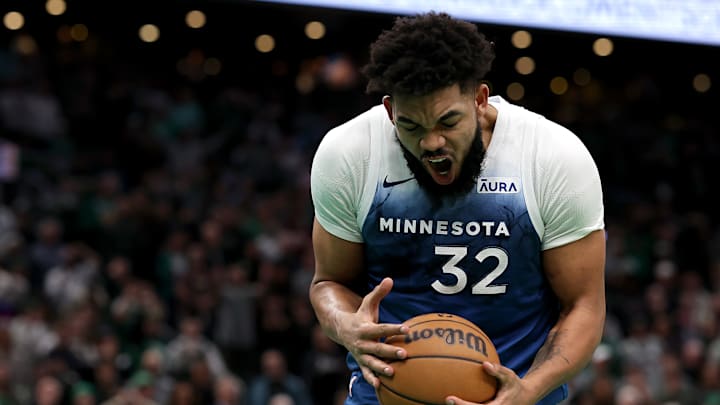Leave it to the NBA to have a blockbuster trade steal the weekend in late October. That’s exactly what happened over the weekend as the Minnesota Timberwolves turned the league upside down by trading Karl-Anthony Towns to the New York Knicks for Julius Randle and Donte DiVincenzo.
There was a lot to unpack, but one of the main reactions coming out was that this trade was great news for the Nuggets. The Wolves and Tim Connelly assembled a roster designed to combat Denver and Nikola Jokic. And their jumbo lineup with Towns and Rudy Gobert was able to tire Jokic and they ultimately knocked the Nuggets out of the playoffs in round two.
So, when the Wolves broke up their star-laden frontcourt after one of their best seasons in franchise history, there was rejoicing in Nuggets land. The one team that was specially built to beat the Nuggets was no more.
Bill Simmons calls Nuggets losers of KAT/Randle blockbuster
But the Ringer head honcho, Bill Simmons had a contrarian take on the trade. In a recent episode of the Bill Simmons Podcast with Austin Rivers, the two broke down the trade and Simmons actually called the deal a loss for the Nuggets.
His argument was that this trade is the way of the Wolves realizing that the Nuggets are no longer their biggest roadblock to a title. Simmons stated that this is a way of Minnesota acknowledging that the teams to beat are now the Thunder and Mavs and that this trade sets them up better to compete with those teams.
Simmons was saying that the league and the conference have passed the Nuggets by and that Connelly realized that’s no longer the team to chase. He didn’t really mean this move is a loss for the Nuggets, as in it’s bad for them, more that it’s a bad representation of how the league thinks about them.
The deal is actually a win for the Nuggets
In reality, the deal happening is a “win” for the Nuggets; one of their toughest competitors got worse, and specifically worse suited to beat the Nuggets. But Simmons does have a point in that teams don’t seem to be measuring themselves against Denver anymore.
In the grand scheme of things though, this doesn’t really matter. It’s probably a good thing for the team to be a bit more under the radar and the hunter instead of the hunted for a change. But it’s still interesting to see how the narrative and discourse around the team is changing.
